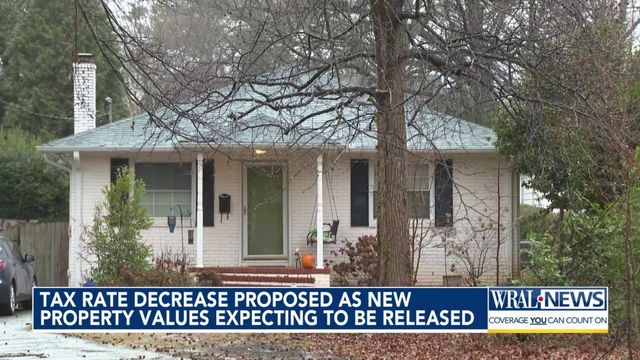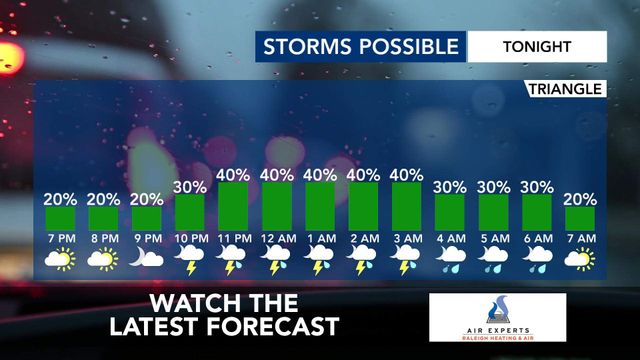Wake County homeowners brace for property tax adjustments: What to expect
While it’s very likely Wake County homeowners’ homes will increase in value compared to 2020, property taxes are not expected to jump as much as one might expect.
Wake County assessors examined 403,886 residential properties and 23,641 commercial properties. The 427,527 properties evaluated are a 51% increase compared to 2020.
“The market doesn’t change at the same rate for every property, jurisdiction or ever location,” said Wake County Tax Administrator Marcus Kinrade. “If the market changed at the same rate for every property, we wouldn’t have to do a revaluation to reset equity.”
Kinrade said people shouldn’t panic because as property values increase, the tax rate to bring in the same amount of revenue decreases.
The Wake County Board of Commissioners and the Raleigh City Council will set a new tax rate that will generate the same amount of taxes with the new property values. It is called a revenue neutral tax rate, and it is still being calculated.
They’re proposing a rate of $0.4643 per $100 of value. It’s a decrease from Wake County’s $.6570 per $100 of value in 2023.
As part of the budget process, city staff present options for the tax rate. Staff can propose a change to the revenue-neutral tax rate as part of the budget proposal, which is expected in the spring with Raleigh’s upcoming fiscal year running from July 1, 2024, to June 30, 2025.
Again, these rates are only suggestions. Commissioners will make the final decision when they approve the budget later this year.
County commissioners don’t have to accept the proposal of $0.4643 per $100 of value. They could ask for even more to fund schools, infrastructure and other public works.
Here’s what the proposed rate means for your property tax bill.
A Wake County house that matches the average rise in value was worth $165,000 in 2016 with a $991 property tax.
- In 2020, it went up to $196,000 with a $1,176 property tax
- In 2024, it would be worth $300,000 with a $1,393 property tax
In the same time, because of the lowering tax rate, tax bills went up – but not nearly as much as the value of your home. So, while your tax bill is 41% higher than in 2016, your house is worth 82% more than it was that year.
“From my perspective, revaluations are important because we then get to put all of this growth on the books at current market values,” Kinrade said.
If the proposed revenue-neutral tax rate of $0.4643 per $100 of value is adopted by county commissioners and local leaders later this year, some municipalities could see higher property tax bills. It includes homeowners in Apex, Cary, Fuquay-Varina, Garner, Morrisville and Wendell.
Homeowners in Holly Springs will likely see their property taxes stay flat whereas homeowners in Knightdale, Raleigh, Rolesville, Wake Forest, Zebulon and unincorporated areas could see a decrease.
Municipalities have their own tax rates on top of the county.
“You just have to pay close attention,” Said Wake County Commissioner Vice Chair Susan Evans. “There are both of those pieces for many, many people.”
How to calculate property taxes
- Find the combined rate for the county and wherever you live
- Divide your property value by 100
- Multiply the combined rate by your property
- Add any additional fees like waste or fire tax
Kinrade said that if county leaders adopted the revenue neutral tax rate: based on an estimated tax base of $301 billion, the county would generate about $1.4 billion in property taxes for fiscal year 2025 and roughly $46.8 million in new property taxes (growth).
WRAL Data Trackers, delivered to your inbox
Subscribe to the WRAL Data Trackers: Raleigh email newsletter for specific, data-driven updates in what's going on in your Raleigh neighborhood.
Choose one or more of Raleigh's 18 neighborhoods and get a weekly, hyper-local update on the data that drives your quality of life, from crime stats to real estate sales to construction or traffic. Compare trends over time or see how your neighborhood compares to the city at large.
Choose your neighborhood and subscribe: https://www.wral.com/datatrackers/












